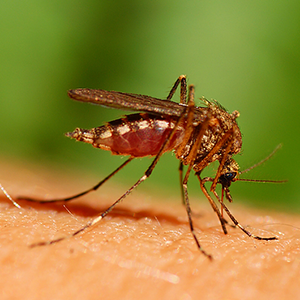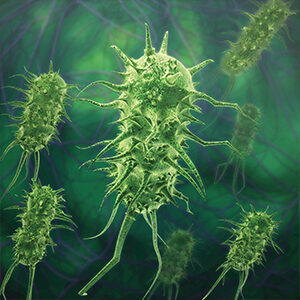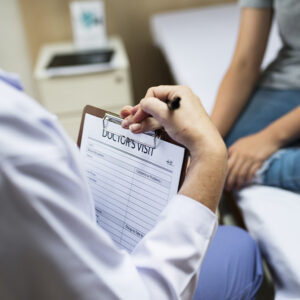What is salmonellosis?
Salmonellosis is an illness caused by Salmonella bacteria. There are more than 2,000 serotypes of Salmonella bacteria that can make people sick. Because there are so many serotypes, illness does not result in immunity.
Who gets salmonellosis?
Anyone of any age can become infected with Salmonella bacteria, but children, especially those less than 5 years old, are the most likely to become ill.
How is salmonellosis spread?
People typically become infected by eating contaminated food or by having contact with an infected person or animal. Common sources of infection are raw or undercooked poultry, eggs, sprouts, and unpasteurized juice. Fresh fruits and vegetables also can become contaminated with Salmonella. Other sources include contact with infected pets and livestock, such as cats, cattle, reptiles (including turtles, frogs, lizards and snakes), and poultry (including chickens, ducks, geese and turkeys).
What are the symptoms of salmonellosis?
Infection with salmonella bacteria causes diarrhea, abdominal cramps, vomiting, and fever.
How soon after infection do symptoms appear and how long do they last?
Symptoms begin one to three days after being infected. Illness usually lasts four to seven days, and most persons recover without treatment. Young children, the elderly, and those who are immune-compromised, are the most likely to have severe infections.
How long is a person able to spread salmonellosis?
Passing infection to another person is possible as long as bacteria are being shed in the stool. Anyone, especially a young child, may shed the bacteria for weeks to months. Those who have been treated with oral antibiotics tend to shed the bacteria longer, so use of antibiotics is based on the severity of the illness. Excellent hand washing is helpful in preventing the spread of illness.
What can be done to prevent the spread of salmonellosis?
- Do not eat raw or undercooked eggs, poultry or meat. Be aware that there may be raw eggs in homemade sauces, salad dressings, and desserts.
- Wash and sanitize all cutting boards, surfaces, and utensils after they have touched raw eggs, poultry or meat.
- Thoroughly wash hands after handling raw eggs, poultry or meat and before handling other food products.
- People infected with salmonellosis should avoid cooking or serving food or drinks to others.
- Anyone who handles animals especially baby animals, reptiles and animals with diarrhea, should wash their hands immediately afterwards. Children who handle
animals may require close supervision to ensure that they have washed thoroughly. - Wash hands thoroughly after using the bathroom and after changing diapers.
Avoid direct and indirect contact between reptiles and infants or immunocompromised persons.
Is there a vaccine for salmonellosis?
There is no vaccine available to prevent salmonellosis.

Animals & Insects Program
Preventing the spread of disease from animals to humans is a public health responsibility.

Communicable Disease Investigation & Prevention (CDIP)
Epidemiologists monitor, track, and respond to infectious disease in the community to prevent spread of illness.

